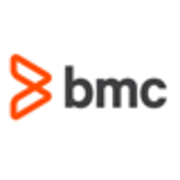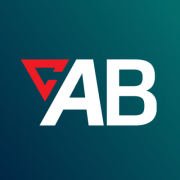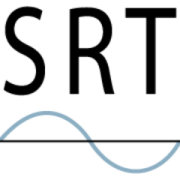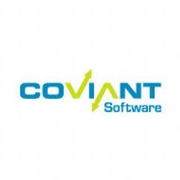Managed File Transfer (MFT) provides secure, reliable, and efficient file transfers across organizations, ensuring data integrity and compliance with industry regulations. It supports a broad range of protocols and offers enhanced security features, making it suitable for enterprises seeking robust data management solutions.
Managed File Transfer solutions offer features that support complex business environments by providing capabilities for automated workflows, data security, and compliance. Designed for efficiency, MFT enables real-time data transfer monitoring, ensuring timely alerts and notifications. With robust encryption and access controls, it supports regulatory compliance across various industries, making it a preferred choice for organizations looking to streamline their data transfer processes while maintaining high security standards.
What features make this solution valuable?In the finance industry, MFT is integral in securely transferring sensitive financial data. In healthcare, it ensures the secure exchange of patient files between hospitals and clinics. In logistics, it facilitates the exchange of shipment data and inventory updates across global networks, improving end-to-end supply chain efficiency.
Enhanced data security and streamlined workflows make Managed File Transfer an essential tool for organizations striving to maintain data integrity and compliance across varied industries.

















































FTP, otherwise known as file transfer protocol, is a protocol primarily used to transmit files between a client and a server on a network. FTPs are less secure than MFTs because transferred files are not encrypted and are usually sent via plain text, leaving data vulnerable. Moreover, FTPs lack automation features and fail to meet compliance requirements. In addition, because FTPs don’t have great authentication to retrieve or send data, they cannot adequately deal with cybersecurity issues like MFTs can.
In contrast to FTP, MFT uses industry-standard network encryption and protocols to ensure data is secure at all times, while in transit or not. Unlike FTPs, managed file transfers can automate manual processes that are time-consuming, and transfers can be simplified and tracked.
FTPs can be time-consuming to develop, maintain and troubleshoot. Although they offer free file transfer software, FTPs may cost more money in the long term because the damage of a data breach can be more detrimental to your organization.
SFTP, or secure file transfer protocol, works over a secure shell (SSH) to allow file transfer, access, and management over a secure data stream. It works by establishing a single secure connection to provide a heightened level of file transfer protection. Additionally, it uses encryption algorithms and authentication to keep files unreadable during the transfer process while simultaneously preventing unauthorized access during the process as well. SFTP is different from MFT not only in the way files are transferred but also in authentication; SFTP does not require two-factor authentication but does need a user ID and password along with SSH keys to ensure a more secure connection.
Managed File Transfer solutions enhance security by providing encryption for data both at rest and in transit. They utilize secure protocols such as SFTP, FTPS, and HTTPS to protect against unauthorized access. MFT solutions offer features like auditing and reporting to ensure compliance with data protection regulations. With role-based access controls and automated file tracking, MFTs provide a comprehensive security framework that minimizes the risk of data breaches, giving you peace of mind when handling sensitive information.
What are the integration capabilities of Managed File Transfer solutions?Managed File Transfer solutions are renowned for their versatile integration capabilities. They seamlessly connect with a variety of systems and applications, including ERP, CRM, and cloud storage providers. MFT solutions support APIs and various file formats allowing you to automate workflows and enhance operational efficiency. By integrating smoothly with existing IT infrastructure, MFT tools help streamline data exchange processes, ensuring that critical information flows smoothly across your organization.
Why should businesses opt for Managed File Transfer over traditional FTP?Businesses should opt for Managed File Transfer over traditional FTP due to its enhanced security, reliability, and ease of use. Traditional FTP is susceptible to security vulnerabilities and lacks the robust features provided by MFT solutions. MFT offers automated workflows, auditing, and visibility features that traditional FTP can't match. With MFT, you gain better control over file transfers, improved compliance with regulations, and a more efficient and streamlined approach to managing data.
What are the cost benefits of implementing Managed File Transfer?Implementing Managed File Transfer solutions can result in significant cost benefits for businesses. By automating file transfers and processes, MFT solutions reduce manual intervention and the risk of errors, leading to operational efficiency and cost savings. The enhanced security features minimize the potential financial impact of data breaches. MFT solutions help in meeting compliance requirements without incurring additional costs for fines or penalties, making them a smart financial choice for businesses looking to optimize operations.
How does Managed File Transfer support regulatory compliance?Managed File Transfer supports regulatory compliance by providing detailed auditing, reporting, and data encryption features. These solutions enable you to track and log all file transfer activity, ensuring transparency and accountability. By adhering to protocols and standards required by regulations such as GDPR, HIPAA, and others, MFT solutions help you maintain compliance effectively. MFT minimizes the risk of non-compliance penalties and enhances your organization's data governance strategy.